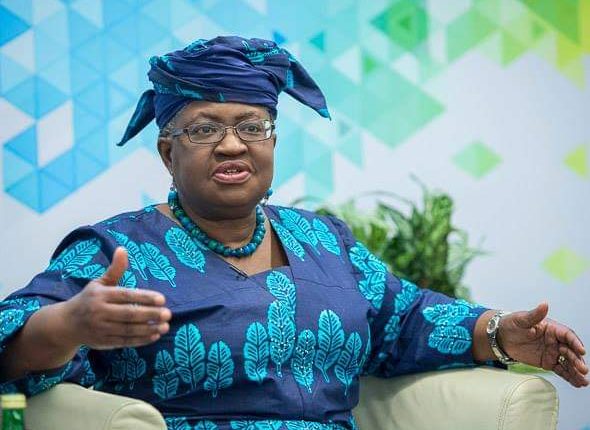Okonjo-Iweala calls for implementation of Global Carbon Price

By Omotayo Edubi
Director General of the World Trade Organisation (WTO), Dr. Ngozi Okonjo-Iweala has identified the adoption of a global carbon price that is allied with the Paris Agreement as the most straightforward way to reducing carbon emission and abating climate change.
Okonjo-Iweala said this in an opinion article she wrote that was published in the Financial Times of London, on Wednesday.
She disputed that the world was still well short of what was needed to limit global warming to 1.5 or even 2.0 degrees Celsius.
The former Nigeria’s minister explained: “The most straightforward solution would be a global carbon price aligned with the Paris Agreement. This would help achieve our collective climate goals, and bring stability and fairness for cross-border business.
“Unfortunately, we are not yet there,” adding that leaders gathering in Glasgow next month for the United Nations’ climate conference COP26 should make solving this problem a priority.
She also charged the WTO, the International Monetary Fund, the World Bank, and the Organisation for Economic Co-operation and Development (OECD), to work together to find solutions that could mitigate the impact of global warming in the absence of globally accepted agreement by offering governments their, “insights on a common methodological approach to carbon pricing.”
“We also have a responsibility to address the needs of least developed and developing countries, to enable a just transition towards environmentally sustainable economies and societies. Joining forces to propose a common approach to global carbon pricing is the way forward. We owe it to the planet and its people. We have no time to waste,” the WTO boss added.
She noted that there were different ways to price carbon and acknowledged that competing ideas and approaches would spur learning and innovation.
She, however, warned that, “fragmentation risks generating trade frictions and unpredictability for businesses seeking to decarbonise. Worse, it could weaken the effectiveness of global efforts to mitigate climate change.”
The director-general also highlighted the concerns of developing countries, especially their fear that border carbon adjustment could become a pretext for protectionism aimed at their exports when they are not the core problem.
She illustrated this concern by noting that Africa contributed roughly three per cent of greenhouse gas emissions, adding that this perspective has made poor regions of the world see the calls for, “border carbon adjustment measures” as unfair.
She also observed that the prevailing notion was that raising the price of carbon in one market risked shifting investment and production to places where carbon prices are lower or non-existent.
“The fear is that carbon-constrained countries would suffer job and industry losses, with global emissions unchanged because polluting production is simply occurring elsewhere.
“This is no argument against carbon pricing. In every sphere of our economy, production and consumption are guided by price signals. Unfortunately, carbon has too often been an exception, though this is starting to change. Indeed, more than 60 different carbon pricing schemes already exist globally, though they cover only 22 per cent of total emissions.
“The challenge comes from the inconsistency of carbon pricing systems. Prices vary from less than $1 per tonne of CO2 in Ukraine to more than $130 per tonne in Sweden. Each subnational, national, or regional system works differently and has different sectoral coverage. Prices are often too low, considering the estimate by the Stern-Stiglitz Commission on Carbon Pricing that somewhere between $50 and $100 per tonne of CO2 is required to meet Paris Agreement temperature targets,” she said.
